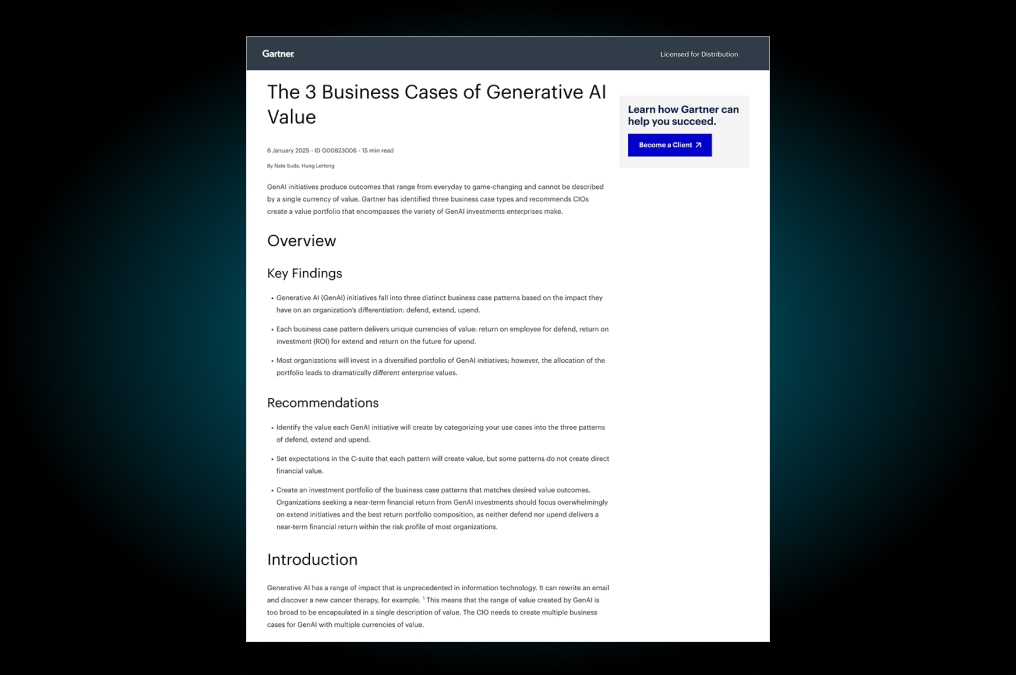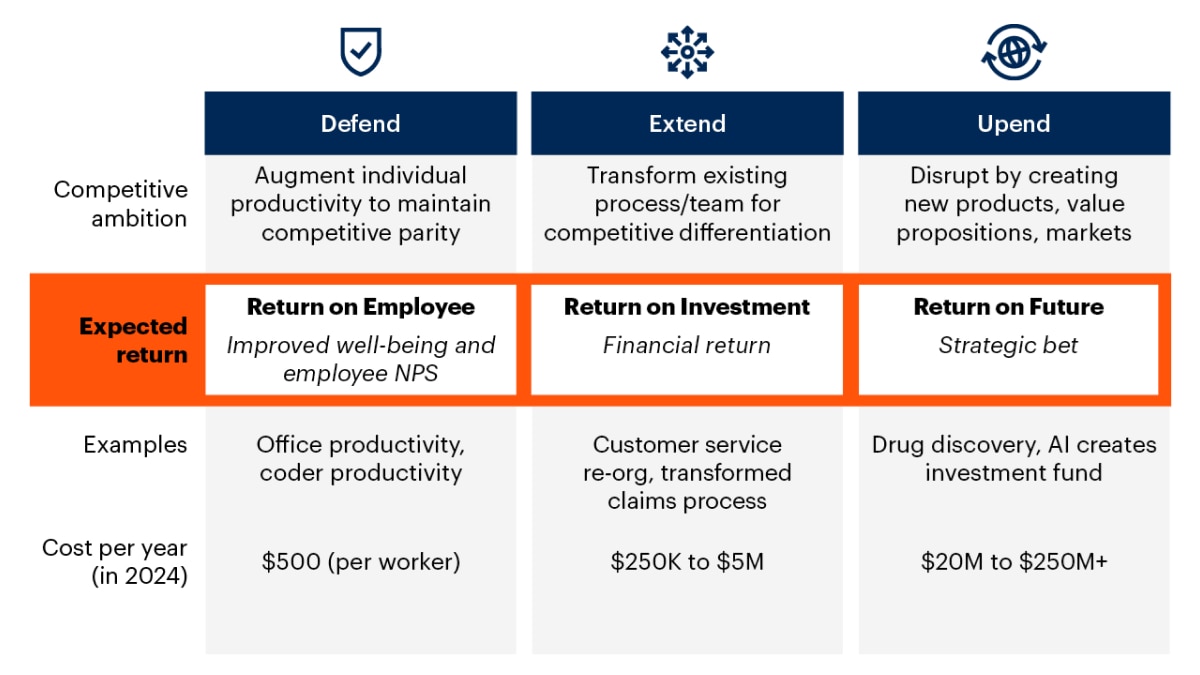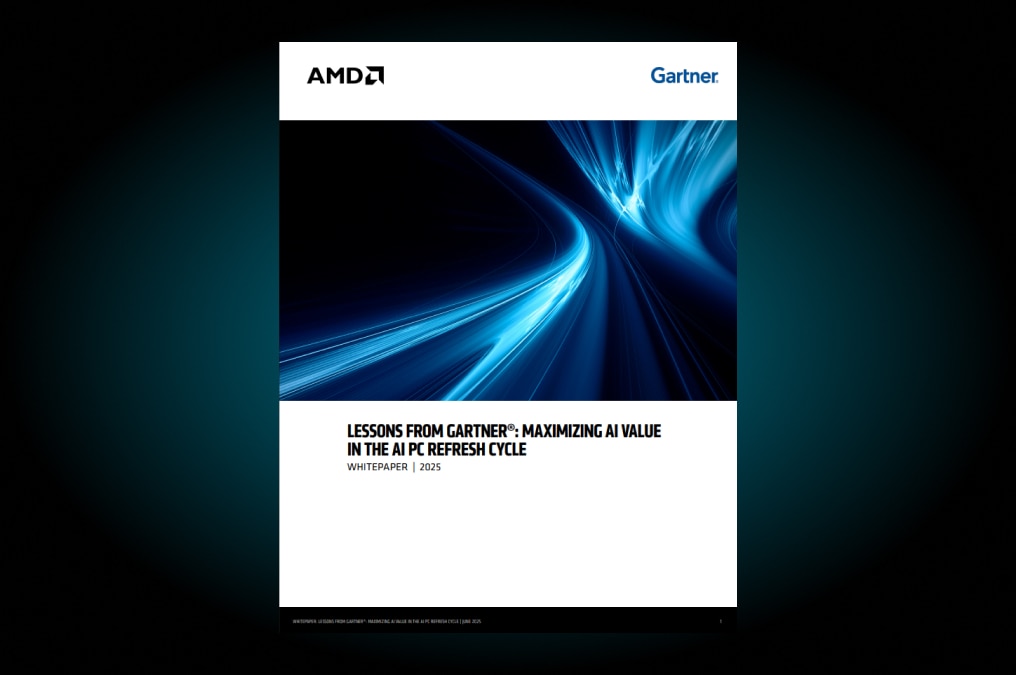
Introduction
Generative AI has a huge impact on technology, from rewriting emails to finding new healthcare treatments. Because of this, the value it creates is too wide to be described in just one way. Enterprises and CIOs need to create different business cases for GenAI, each showing different types of values: return on employee, return on investment, and return on the future.
Gartner has identified and defined three GenAI business case patterns with three different values:

What Return Can You Expect?
The Gartner report states that “Extend initiatives are typically focused on specific business processes targeting improvement in specific, preexisting, business outcome-driven metrics. The most common extend initiatives are in customer service (of which there are many examples), marketing and software engineering.” According to Gartner, extend initiatives are creating the most certain and significant near-term financial value creation.
Defend (Return on Employee)
180%
Increase in average net promoter score (NPS) of digital workers
Extend (Return on Investment)
83%
Strong, near-term financial return
Upend (Return on the Future)
200%
High-risk, long-term return, innovation-driven

Explore more AMD Ryzen AI Processors

Related Resources
Get Started on an AI Commercial PC
Need more information about an AMD commercial product for your business? Fill out the form below to get in touch with an expert and find out what AMD can do for your organization.
Footnotes
Gartner, The 3 Business Cases of Generative AI Value, Nate Suda, Hung LeHong. 6 January 2025
GARTNER is a registered trademark and service mark of Gartner, Inc. and/or its affiliates in the U.S. and internationally and is used herein with permission. All rights reserved.
- As of May 2023, AMD has the first available dedicated AI engine on an x86 Windows processor, where 'dedicated AI engine' is defined as an AI engine that has no function other than to process AI inference models and is part of the x86 processor die. For detailed information, please check: https://www.amd.com/en/technologies/xdna.html. PHX-3a
- As of May 2023, AMD has the first available dedicated AI engine on an x86 Windows processor, where 'dedicated AI engine' is defined as an AI engine that has no function other than to process AI inference models and is part of the x86 processor die. For detailed information, please check: https://www.amd.com/en/technologies/xdna.html. PHX-3a
Gartner, The 3 Business Cases of Generative AI Value, Nate Suda, Hung LeHong. 6 January 2025
GARTNER is a registered trademark and service mark of Gartner, Inc. and/or its affiliates in the U.S. and internationally and is used herein with permission. All rights reserved.
- As of May 2023, AMD has the first available dedicated AI engine on an x86 Windows processor, where 'dedicated AI engine' is defined as an AI engine that has no function other than to process AI inference models and is part of the x86 processor die. For detailed information, please check: https://www.amd.com/en/technologies/xdna.html. PHX-3a
- As of May 2023, AMD has the first available dedicated AI engine on an x86 Windows processor, where 'dedicated AI engine' is defined as an AI engine that has no function other than to process AI inference models and is part of the x86 processor die. For detailed information, please check: https://www.amd.com/en/technologies/xdna.html. PHX-3a






